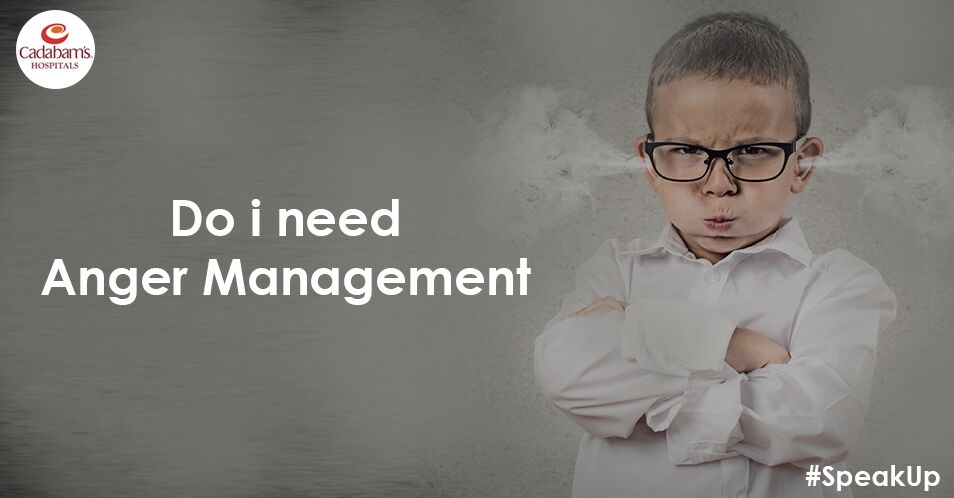Table of Content
Signs of Anger Issues
Does your temper flare up quite often? Do you experience difficulty controlling your anger? Do you think your anger could hurt yourself as well as others? If yes, you may need to consider anger management. Anger is an unbridled emotion that could lead to an ongoing amount of damage if not managed. We all experience anger but management of anger is a healthy way of controlling our instincts.
What Are Anger Issues?
Anger is a normal human reaction that can be effective in certain situations and detrimental in others. Studies show that the latter may eventually lead to cardiovascular diseases, eating disorders, diabetes, and accidents.
What are Different Types of Anger Issues?
Most of us experience anger in different degrees and express it in different ways.
Inward Anger
This form of anger is directed internally in the form of negative self-talk, depressing thoughts, and more. People experiencing this form of anger tend to punish themselves.
Outward Anger
Expressing anger verbally or physically to an external entity is what outward anger looks like. The entity can be an object (throwing or breaking it) or a person (shouting).
Passive Anger
This is also known as passive-aggressive behavior where the person degrades others, acts sarcastically, sulks, or uses silent treatment as a means to express conflict.
Common Signs Of Anger Issues
Here are some signs that will help you understand if you have an anger problem or not:
- Getting into arguments with your family, friends, or acquaintances
- Problems with the law
- Holding in feelings of anger
- Being unable to control your anger in anger-provoking situations (E.g. Someone being very rude to you)
- Teeth grinding, headaches, clenching of the fists, increased heart rate, redness of the face, feeling hot, etc.
- Struggling with relationships
- Holding grudges
- Regretting your behavior post your outburst
- Damaging, breaking, or destroying objects in the fit of your anger
- Looking at the world negatively
- Consuming alcohol or any other drugs
What Causes Anger Issues?
Like any other emotion, anger also has several causal factors. Some of these include-
- Underlying mental health conditions
- Being treated unfairly
- Trauma or abuse
- Bereavement and grief
- Past experiences
- Family history
- Personal issues (financial, occupational, and social problems)
What Treatments Are Available for Anger Issues?
Based on the severity of the anger you are feeling and the triggers involved there are several treatment options available. Treatment options like psychotherapy, social skills training, mindfulness practices, and more focus on not only the anger at hand but also other underlying conditions that exacerbate negative emotions.
Here are a few ways anger management can help you:
- Gaining an insight into understanding the causes and triggers of your anger.
- Learning constructive and adaptive ways of expressing your anger.
- Developing an ability to be mindful of your action in an anger-provoking situation
- Developing an ability to stop yourself in an anger-provoking situation.
- Improving your relationships with your friends, family, and loved ones.
When Should You Seek Help?
The consequences of your ill temper have far-reaching effects; not seeking anger management can destroy your well-being and relationships with others in your life. Don’t let your anger define and make choices for you.
Take control of your life. Get help from our expert psychologists now, call on +919741476476 or log on to www.cadabamshospitals.com.
How can Cadabams Help?
Cadabams Hospital has a team of specialized psychiatrists, psychologists, and counselors who are dedicated to anger management. Reach out to us for information on anger issues, their impacts, and effective strategies to cope with this condition successfully.
FAQs
Is anger management necessary?
Anger management is essential for those who struggle with or are impaired by feelings of anger. It allows them to express their feelings constructively through adaptive coping strategies as suggested by experts.
How do I know if I have anger management issues?
Here are a few common signs that may be indicative of anger issues-
- Engaging in conflicts with family, friends, or acquaintances
- Legal troubles or issues with the law
- Suppressing feelings of anger
- Difficulty controlling anger during provoking situations (e.g., when someone is rude to you)
- Physical signs of anger such as teeth grinding, headaches, clenched fists, increased heart rate, redness of the face, feeling overheated, etc.
- Struggling with interpersonal relationships
- Holding grudges against others
- Feeling remorseful for your behavior after an angry outburst
- Damaging or destroying objects during fits of anger
- Adopting a negative outlook on the world
- Turning to alcohol or drugs as a way to cope with anger
Is it unhealthy to not get angry?
Not getting angry is not inherently unhealthy. People have different emotional responses. It's important to find a healthy balance and effectively handle emotions, including anger when it arises. Seeking support from a mental health professional is helpful if emotional responses cause distress or issues.
Do anger issues go away?
Anger issues can improve and be effectively managed with the right approach and support. Identifying underlying causes, learning anger management strategies, and making lifestyle changes can make a significant difference. While the complete elimination of anger may not be realistic, healthier ways of expressing and managing it can be achieved. Seeking help from mental health professionals is beneficial if anger issues persist or significantly affect daily life.
What happens if anger is left untreated?
If left untreated, anger can lead to various negative consequences, including health issues, strained relationships, social isolation, legal problems, workplace challenges, emotional distress, and potential impact on children. Seeking help from mental health professionals for anger management can lead to healthier emotional and interpersonal outcomes.
How Cadabam's Help you for Addiction?
- 410+ Professional Consultants
- 1,00,00+ Happy Faces
- 120+ Currently Seeking Treatments





